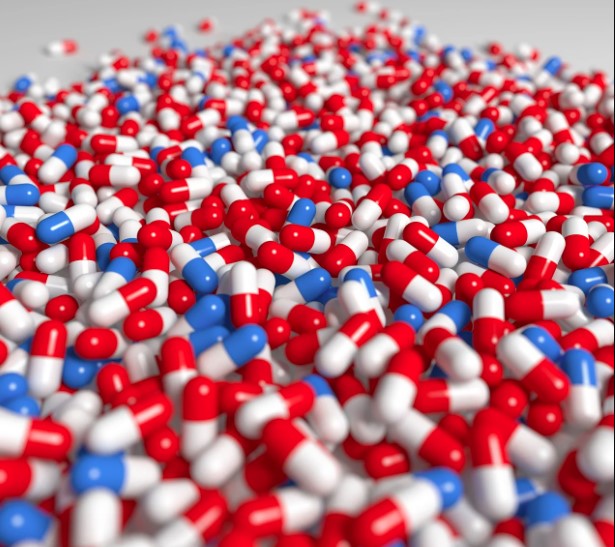Introduction
Collagen, often lauded as the ‘glue’ that holds our body together, is a fundamental protein essential for our skin, bones, muscles, tendons, and ligaments. Its significance in maintaining youthful skin and strong bones cannot be overstated. However, the increasing demand for collagen supplements has raised concerns about sustainability and ethical sourcing. In this article, we delve into marine collagen, an eco-friendly and sustainable alternative, exploring its environmental impact and why it’s a responsible choice for those seeking collagen supplementation.
Understanding Collagen and Its Sources
Before we dive into marine collagen, let’s first understand collagen itself. Collagen is a protein that forms the basic building blocks of our skin, tendons, ligaments, and other connective tissues. It’s sourced from various animals, with the most common sources being bovine (cow), porcine (pig), and marine (fish). As consumer awareness of sustainability grows, there’s a shift towards more responsible sourcing, making marine collagen an attractive option.
Marine Collagen: A Sustainable Alternative
Sourcing Process
Marine collagen is extracted from fish scales, skin, and bones that would otherwise go to waste. Utilizing these byproducts promotes a more circular economy and reduces waste in the fishing industry.
Responsible Fishing
The fishing industry is increasingly adopting sustainable practices, focusing on responsible fishing methods that minimize environmental impact. This includes avoiding overfishing, reducing bycatch, and protecting marine habitats.
Reduced Environmental Footprint
Compared to land-based animals, fish generally have a lower environmental footprint in terms of water usage, feed, and greenhouse gas emissions. Utilizing fish byproducts for marine collagen helps in reducing waste and the overall environmental impact of the fishing industry.
Environmental Benefits of Marine Collagen
Waste Reduction
Utilizing fish byproducts for marine collagen significantly reduces waste in the fishing industry. Rather than discarding fish scales, skin, and bones, they are repurposed into valuable collagen supplements also you can buy it online supplement store in pakistan
Preservation of Marine Ecosystems
Promoting the use of fish byproducts for collagen helps in reducing the pressure on marine ecosystems. When more parts of the fish are used, it lessens the need to catch additional fish solely for collagen production.
Contribution to Circular Economy
By repurposing fish waste into collagen supplements, we contribute to a circular economy where waste is minimized, and resources are utilized efficiently.
Sustainable Fishing Practices: Ensuring Responsible Sourcing
Certification Programs
Several organizations offer certifications that guarantee sustainable fishing practices. Examples include the Marine Stewardship Council (MSC) certification and the Aquaculture Stewardship Council (ASC) certification.
Traceability
Companies can track the journey of their marine collagen, ensuring that it is sourced responsibly and sustainably. Consumers can look for brands that provide detailed information about the sourcing of their collagen.
Encouraging Ethical Fishing
Supporting brands that prioritize ethical fishing practices can drive the fishing industry towards more responsible sourcing, benefiting both marine life and consumers.
Marine Collagen vs. Land-Based Collagen: A Sustainability Comparison
Comparing the environmental impact of marine collagen with land-based collagen sources, such as bovine and porcine collagen, reveals notable differences in sustainability.
Land and Water Usage
Marine collagen generally requires fewer resources in terms of land and water compared to land-based collagen sources. The extensive land required for cattle farming and the water needed for their feed contribute to a larger environmental footprint.
Greenhouse Gas Emissions
The carbon footprint of collagen tends to be lower compared to land-based collagen due to the methane produced by cattle, a potent greenhouse gas.
Responsible Sourcing
With the rising awareness of overgrazing and deforestation associated with land-based collagen, collagen emerges as a more sustainable and responsible choice.
Ethical Considerations in Marine Collagen Usage
Overfishing Concerns
While utilizing fish byproducts is beneficial, overfishing remains a concern. It’s crucial to choose collagen from companies committed to responsible and regulated fishing practices.
Ecosystem Preservation
Responsible marine collagen sourcing includes ensuring that the fishing practices do not harm the ecosystem or endanger other species.
Consumer Responsibility
Consumers play a vital role in encouraging ethical sourcing by supporting brands that prioritize sustainability, responsible fishing, and transparent sourcing practices.
Encouraging Sustainable Consumer Behavior
Informed Choices
Educating consumers about the benefits of collagen and its positive environmental impact can guide them towards making sustainable choices.
Responsible Brands
Promoting brands that are transparent about their sourcing and committed to sustainability encourages the industry to adopt better practices.
Sustainable Lifestyle
Encouraging an overall sustainable lifestyle, including mindful consumption and reduced waste, complements the choice of sustainable collagen supplements.
Real-Life Examples and Success Stories
Sharing real-life success stories of individuals who have adopted collagen and witnessed its benefits can inspire others to make the switch to a more sustainable choice.
Expert Opinions and Recommendations
Quotes and insights from marine biologists, environmentalists, and sustainability experts endorsing marine collagen’s sustainable benefits further reinforce its importance.
Conclusion
Marine collagen is more than just a health and beauty supplement; it’s a sustainable choice that aligns with responsible and ethical sourcing. By opting for marine collagen, consumers contribute to waste reduction, responsible fishing, and the preservation of marine ecosystems. Embracing marine collagen is not only a step towards better health but also a step towards a healthier planet
You may also like
-
STD Clinic Dubai: Confidential & Professional STD Testing
-
Buy Shilajit UK Guide to Finding Authentic Himalayan Shilajit
-
Buy Shilajit Online: A Modern Path to Ancient Wellness
-
The Best Shilajit Brands: A Complete Guide to Quality, Purity & Performance
-
Unlocking Nature’s Secret: The Best Place to Buy Shilajit

